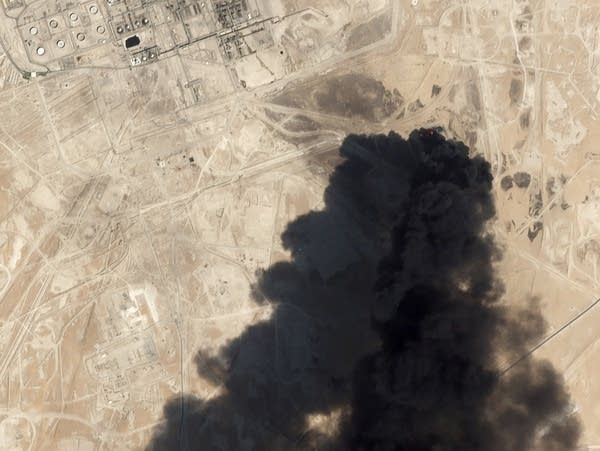Attack on Saudi oil sites raises risks amid U.S.-Iran tension

This satellite image from Planet Labs Inc. shows thick black smoke rising from Saudi Aramco's Abqaiq oil processing facility in Buqyaq, Saudi Arabia, on Saturday.
Planet Labs Inc via AP
Go Deeper.
Create an account or log in to save stories.
Like this?
Thanks for liking this story! We have added it to a list of your favorite stories.


